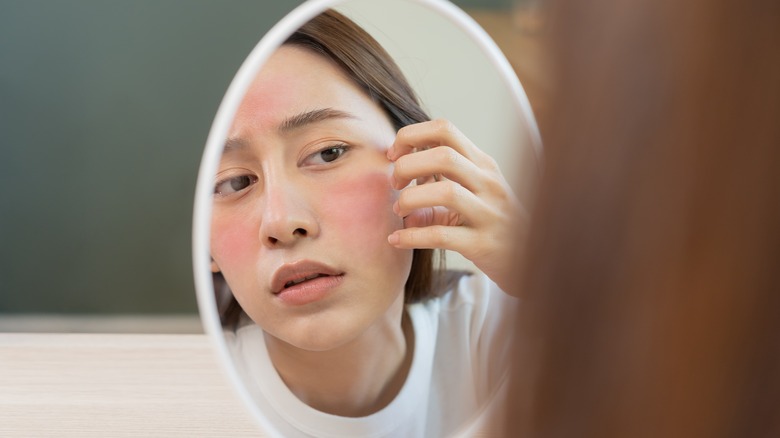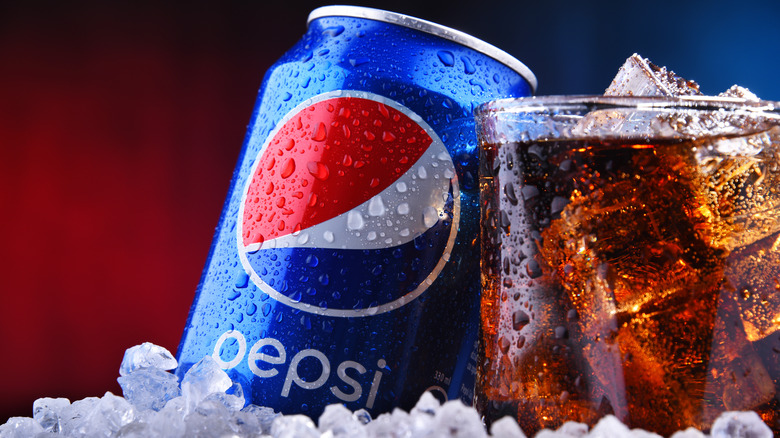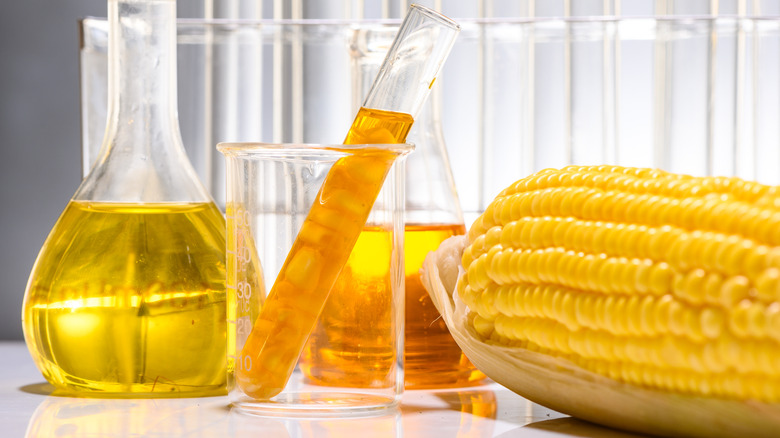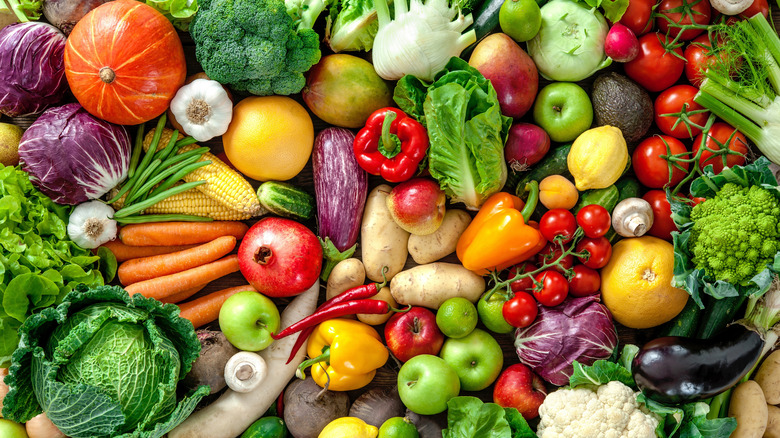The Top 3 Foods To Avoid For Healthier Skin, According To A Leading Skincare Doctor - Exclusive
We may receive a commission on purchases made from links.
As it turns out, some foods are better for your skin than others. If you're prone to acne and other skin conditions or concerned about the quality of your skin, you may want to cut back on certain foods and snacks for the sake of your skin health. While there are many different factors that can play a role in the health and overall quality of your skin, such as genetics, hormones, and sun exposure, your diet can also negatively impact your skin (per Eucerin).
In an exclusive interview with Health Digest, Dr. Mark Tager, MD, CEO of San Diego-based ChangeWell Inc., tells us which foods to avoid for healthier and clearer skin. "I am not a fan of demonizing specific foods, and prefer to stay with categories and look at individual foods through the lens of personalized nutrition and why certain foods are bad for certain people," Tager says. That being said, there some foods that do more harm than good or simply aren't nutritious and beneficial enough to be considered part of a healthy and well-balanced diet.
Allergenic foods
According to Tager, the first type of food you should steer clear of is any food that triggers an allergic reaction. "For people who have true food allergies and experience lip or throat swelling, hives, hoarseness, difficulty breathing, obviously for them the reason to avoid offending agents is clear," Tager shares. "These reactions are an immune system response mediated by IgE [antibodies]. The symptoms are immediate and the cause is clear." Some of the most common food allergens include nuts, gluten, and cow's milk protein.
Tager also recommends avoiding foods that you have an intolerance or sensitivity to. "Food sensitivities, on the other hand, are more subtle and can occur hours or days after eating a certain food. In addition to nuts and dairy, common food reactions are often triggered by shellfish or eggs," Tager explains. These reactions frequently manifest in the skin. In addition, Tager says that some people are even sensitive to histamine in foods and may experience skin irritation, headaches, and diarrhea after consuming foods high in histamine. Some foods with high histamine include alcohol and other fermented foods and beverages such as kimchi, sauerkraut, and yogurt.
Sugary drinks
You should also limit the number of sugary drinks you consume on a regular basis. Tager says drinking beverages every day that are loaded with sugar and contain little-to-no nutrients can be detrimental to your health, especially when it comes to your skin. "The average American takes in 100 grams or more of added sugar a day," Tager notes. "A 12-ounce can of a sugary drink laden with high fructose corn syrup can account for about 40 grams of this amount, almost 10 teaspoons of pure sugar."
According to the American Heart Association, the average American should consume only 25 to 36 grams of sugar per day. Not only can consuming excessive amounts of sugar lead to obesity and insulin resistance, but Tager shares that excess sugar can also bind to the collagen in your skin and make it more brittle, which can lead to an increase in fine lines and cross hatching on the skin.
Refined oils
Tager also recommends reducing your daily intake of refined oils, such as corn oil, peanut oil, sesame oil, and sunflower oil. "While you really can't totally avoid them, you can minimize them, and this is the key to a healthy balance of essential fatty acids," Tager explains. That's because these refined oils are rich in Omega-6 fatty acids. While Omega-6 is an important and essential fatty acid, balancing it with adequate levels of Omega-3 fatty acids is critical, particularly when it comes to your skin. Some foods that are high in Omega-3 fatty acids include fish, avocados, walnuts, flaxseed oil, and olive oil.
In addition, consuming too many Omega-6 fatty acids on a regular basis can affect your skin health. "Inflammation is responsible for much of the aging that takes place in the skin, and an excess of Omega-6 will create inflammatory molecules and contribute to the breakdown of the skin structure," Tager says.
What to eat instead
Instead of consuming food allergens, sugary drinks, and refined oils, Tager suggests eating colorful fruits and vegetables. That's because plants contain phytonutrients, which can help protect your skin from sun damage. They also encourage the production of neurotransmitters and short-chain fatty acids (SCFAs). "These SCFAs include prioprionate and acetate, which travel through the blood stream to the skin where they help to maintain a healthy skin barrier," Tager shares.
That's why it's important to consume an array of healthy fruits and vegetables that represent every color of the rainbow. "Get a good mixture of the different colors," Tager urges. "Foods that are high in lycopene—like tomatoes, carrots, and red cabbage—are particularly beneficial for the skin. So too are blueberries, which are antioxidant powerhouses containing anthocyanins. These flavonoids are responsible for their dark purple-blue color." According to Tager, eating bananas is also good for your skin. That's because they're full of potassium and silica, which is an essential mineral for maintaining strong and healthy hair, nails, and skin. You can also get silica from brown rice, green beans, and oat bran, Tager says.
For more information on Dr. Mark Tager, visit his website, check out his book, or find him on LinkedIn and Instagram.





